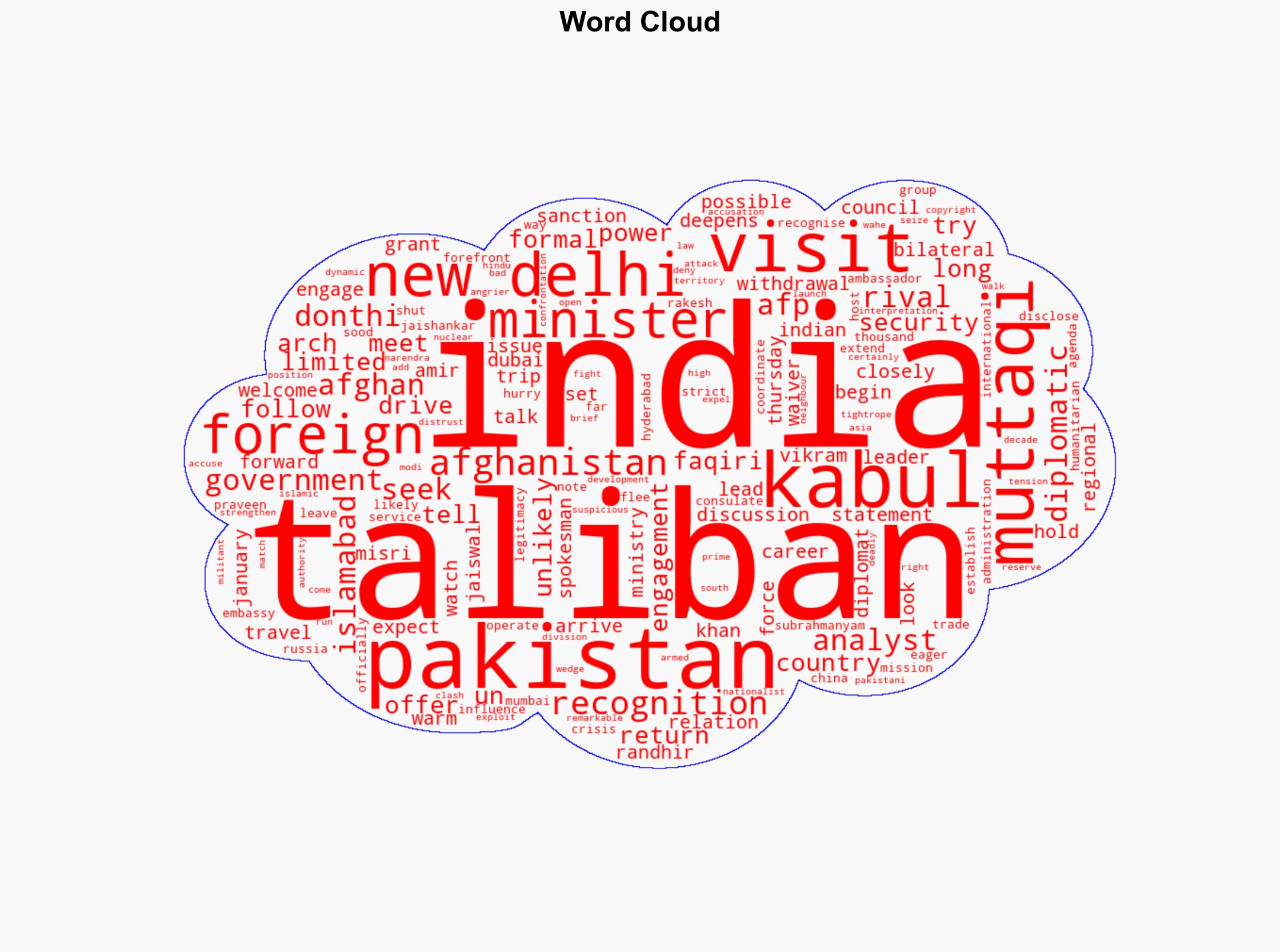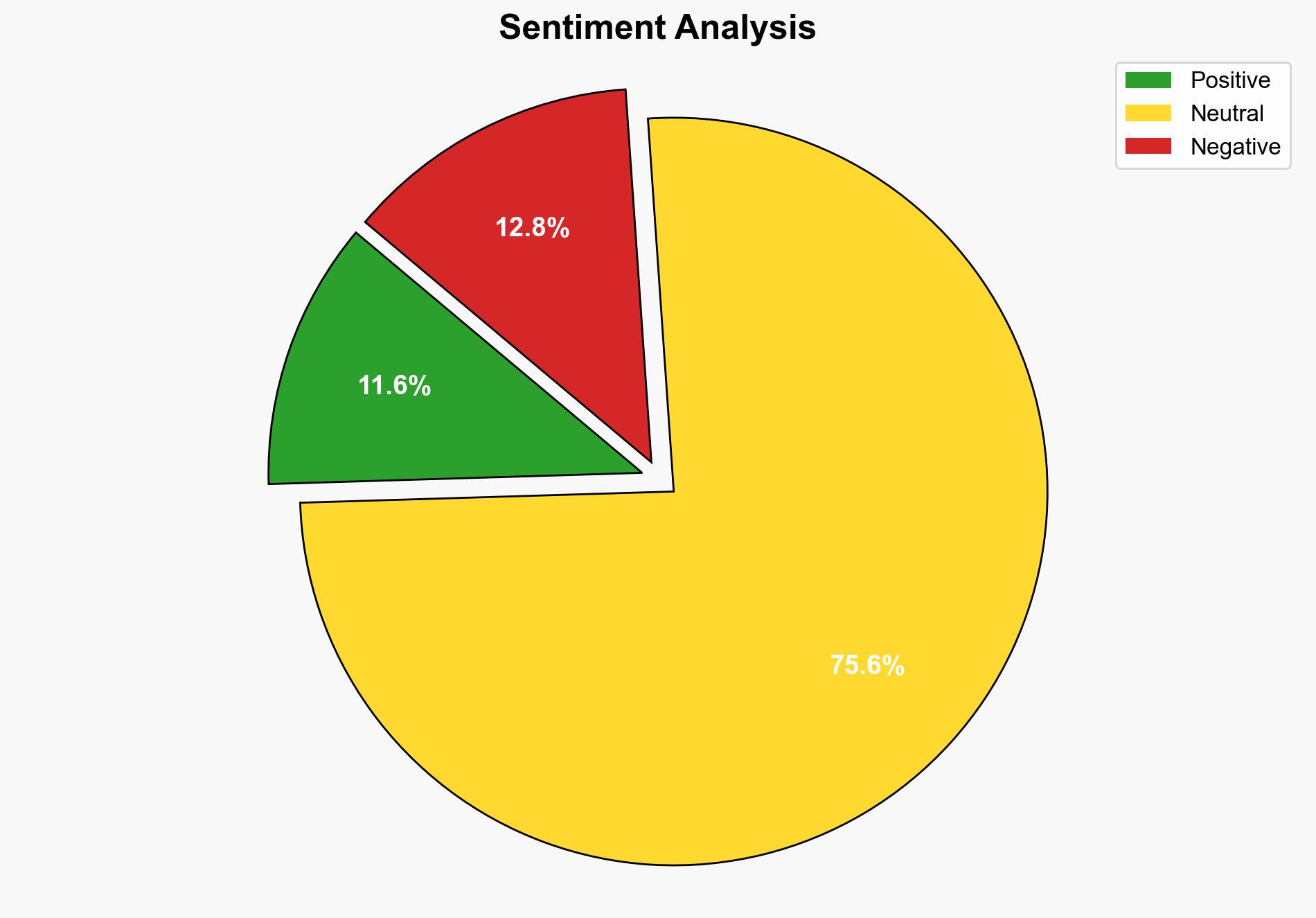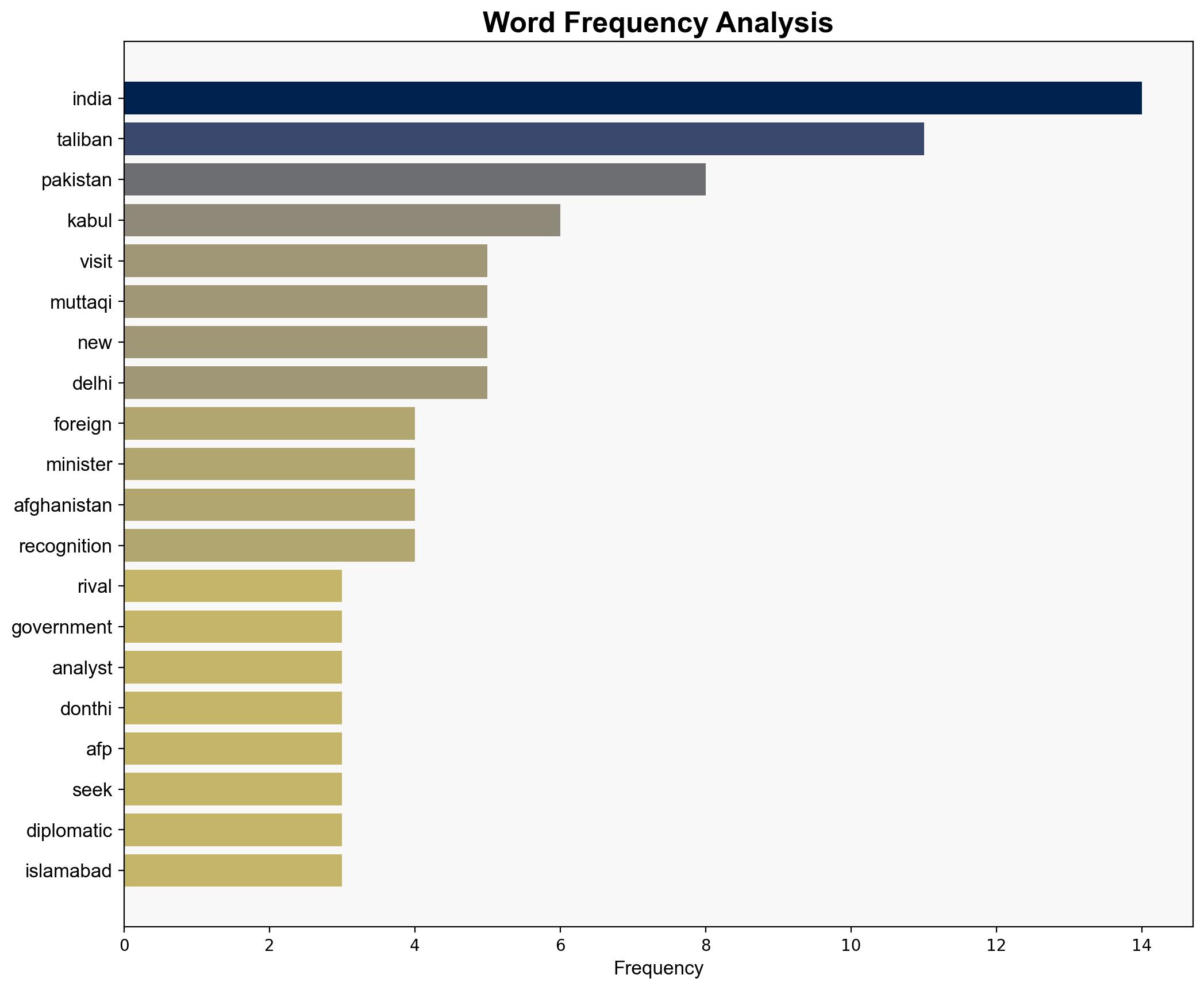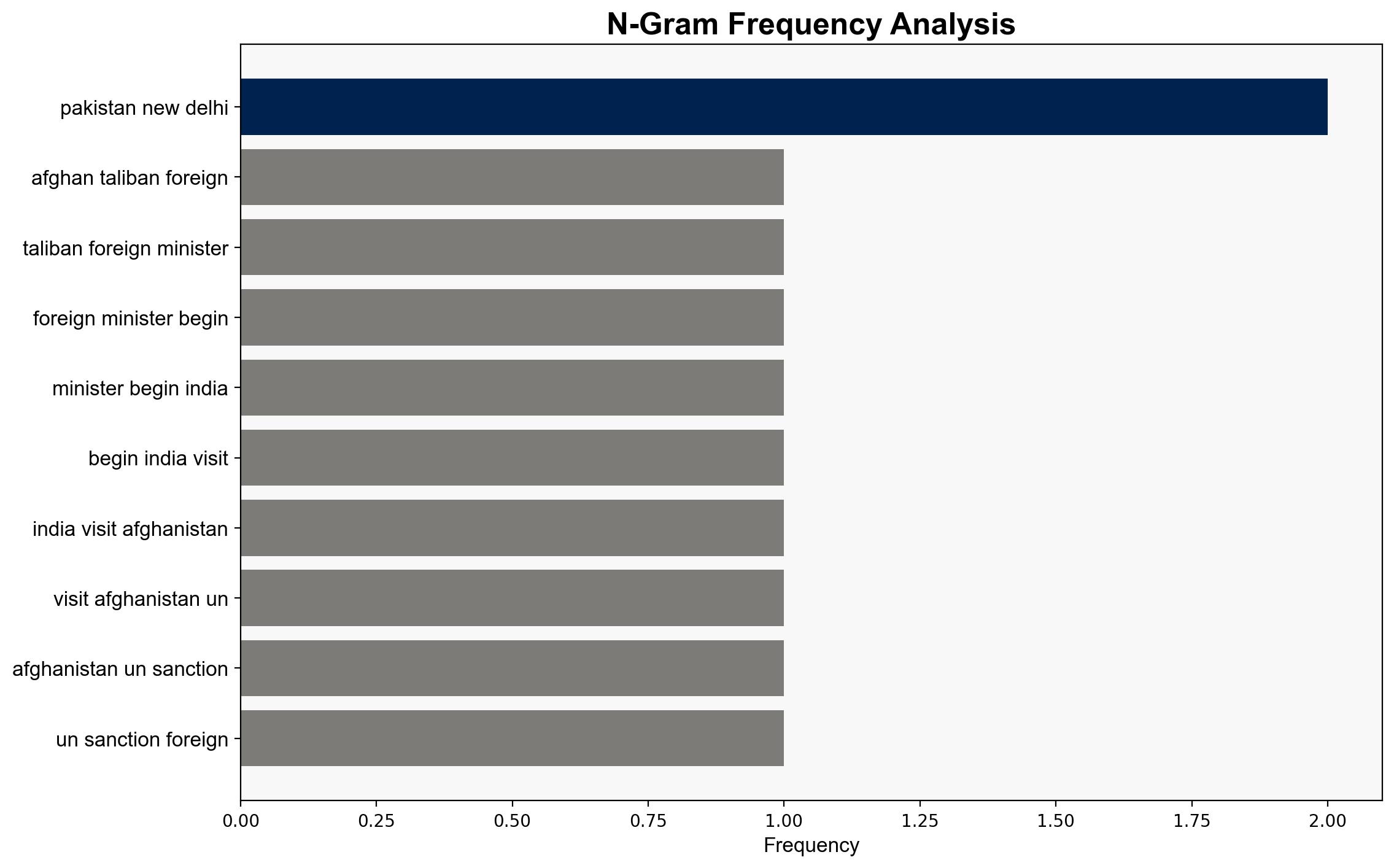Afghan Taliban Foreign Minister Begins First India Visit – International Business Times
Published on: 2025-10-09
Intelligence Report: Afghan Taliban Foreign Minister Begins First India Visit – International Business Times
1. BLUF (Bottom Line Up Front)
The visit of Afghan Taliban Foreign Minister Amir Khan Muttaqi to India marks a significant diplomatic engagement, potentially reshaping regional dynamics. The most supported hypothesis suggests that India aims to establish influence in Afghanistan to counterbalance Pakistan and China’s presence. Confidence level: Moderate. Recommended action: India should cautiously engage with the Taliban to maximize strategic leverage while maintaining international norms and human rights considerations.
2. Competing Hypotheses
1. **India seeks to establish influence in Afghanistan to counterbalance Pakistan and China**: This hypothesis posits that India is engaging with the Taliban to increase its regional influence and counter the strategic positions of Pakistan and China. This is supported by India’s history of hosting Afghan refugees and its limited diplomatic presence in Kabul.
2. **India is cautiously exploring diplomatic engagement without formal recognition**: This hypothesis suggests that India is testing the waters for potential diplomatic relations with the Taliban, focusing on trade and security without extending formal recognition. This aligns with India’s strategic interest in regional stability and its cautious approach to Taliban’s governance.
3. Key Assumptions and Red Flags
– **Assumptions**: It is assumed that India can effectively balance its engagement with the Taliban without alienating Pakistan or China. Another assumption is that the Taliban is genuinely interested in diplomatic relations beyond seeking legitimacy.
– **Red Flags**: The Taliban’s strict interpretation of Islamic law may conflict with India’s democratic values, posing a risk to sustained engagement. Additionally, the lack of formal recognition could limit the depth of diplomatic discussions.
4. Implications and Strategic Risks
– **Geopolitical Risks**: Increased engagement with the Taliban could strain India’s relations with Pakistan, potentially escalating regional tensions. Conversely, it could also drive a wedge between the Taliban and Pakistan, altering regional alliances.
– **Economic Implications**: Strengthened ties could open new trade routes and economic opportunities, but instability in Afghanistan poses significant risks to investment.
– **Security Risks**: Enhanced diplomatic ties may improve intelligence-sharing on counter-terrorism, but could also expose India to security threats if Taliban factions remain aligned with extremist groups.
5. Recommendations and Outlook
- India should engage in dialogue with the Taliban to explore mutual interests, focusing on trade and security cooperation.
- Maintain a cautious approach, avoiding formal recognition until the Taliban demonstrates commitment to international norms.
- Scenario Projections:
- Best Case: India successfully establishes influence in Afghanistan, enhancing regional stability and economic ties.
- Worst Case: Engagement leads to increased tensions with Pakistan, resulting in regional instability.
- Most Likely: India maintains a cautious diplomatic relationship, balancing regional interests without formal recognition.
6. Key Individuals and Entities
– Amir Khan Muttaqi
– Vikram Misri
– Subrahmanyam Jaishankar
– Praveen Donthi
– Rakesh Sood
– Wahe Faqiri
7. Thematic Tags
national security threats, regional focus, diplomatic engagement, geopolitical strategy





